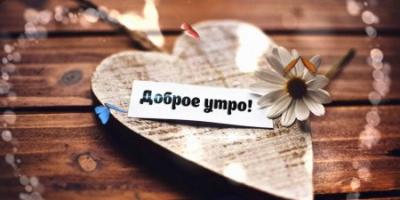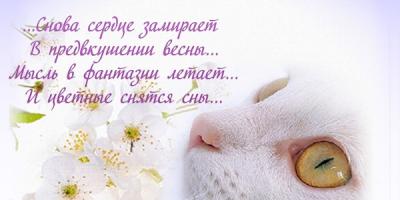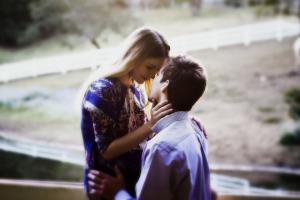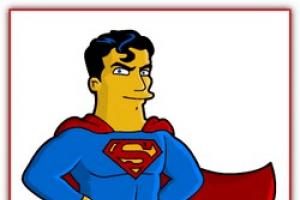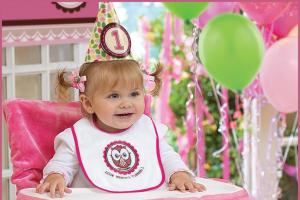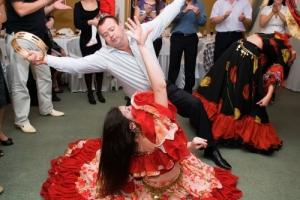May 9 - Victory Day
Great Patriotic War 1941-1945 considered the bloodiest in human history. The entire Soviet people stood up to fight the fascist invaders. People of all nations and nationalities who worked at the front and in the rear were united by one goal - to survive and win.
The enemy advanced with heavy fighting from the border Brest Fortress to Smolensk, from Kyiv to Tula and met heroic resistance everywhere. The enemy received a fierce rebuff near the city of Yelnya. Here, for some time, the unstoppable onslaught of the German hordes was stopped.
And yet the enemy continued to rush towards Moscow. The capital of the Soviet Union was constantly subjected to devastating bombings. However, the efforts of the fascist invaders to capture Moscow ended in complete failure. Soviet troops stopped the Germans near Moscow and forced them to retreat. This was the first major defeat of the enemy. But victory was still far away. After the triumphant battle of Moscow, Soviet troops suffered setbacks in the Crimea and near Kharkov.
Leningrad experienced the most difficult days. For 900 days and nights the city on the Neva was under siege. The enemy blocked all approaches to it, which made the supply of food impossible.
Almost 850 thousand people died from hunger, cold, continuous bombing and shelling. And yet the enemy failed to break the great city. On January 27, 1943, the blockade ring was broken.
The turning point in the war occurred at Stalingrad (now this city is called Volgograd). Here, between the Volga and Don, a great battle lasted for 200 days, in which a huge group of German troops was defeated - almost 1.5 million people.
Then Soviet troops destroyed a large concentration of enemy forces in the area of Kursk, Orel, Belgorod and drove the invaders through liberated Ukraine and Belarus to the capital of Nazi Germany, Berlin.
Berlin was soon captured, and on May 9, 1945, the bloody war with German fascism ended. Since then, this date has become a great national holiday of Victory.
On June 24, 1945, the first Victory Parade took place in Moscow, on Red Square. The parade was hosted by Deputy Supreme Commander-in-Chief Marshal of the Soviet Union Georgy Zhukov. And in the evening, in honor of Victory Day, a fireworks sounded, 30 salvos from a thousand guns.
The Soviet army liberated not only the USSR, but also other countries from fascism. The victory came at a terrible price - we lost 27 million people in this war.
On Victory Day Meetings of war veterans are held. Celebrations and concerts are organized for former front-line soldiers. People lay wreaths and flowers at monuments of military glory and mass graves.
May 9 is also considered the Day of Remembrance of leaders and soldiers who died on the battlefields. Memorial services are held in churches and temples in Russia on this day.
Eternal memory to all who gave their lives so that we could live in a free country and under a peaceful sky.
.jpg)
Song Victory Day
Words V. Kharitonova
Music D. Tukhmanova
Victory Day, how far it was from us,
Like a coal melting in an extinguished fire.
There were miles, burnt, in dust,
Chorus:
This Victory Day
The smell of gunpowder
This is a holiday
With gray hair at the temples.
This is joy
With tears in his eyes.
Days and nights
at open hearth furnaces
Didn't close
our homeland of eyes.
Day and night battle
led a difficult time -
We brought this day closer as best we could.
Hello mother,
Not all of us returned...
Would like to run barefoot through the dew
We walked half of Europe, half of the Earth
We brought this day closer as best we could.
War comes unexpectedly. Its cruelty and injustice break human destinies. Even today, 70 years after the end of the Great Patriotic War, the planet celebrates the triumph of peace, which is a symbol of the unbending will of the people’s spirit for freedom.
Road to peace
The final stage of the war against fascism - this is the history of the holiday would not have taken place without the courage of our brave warriors. It took the troops of the Soviet Union four long years to drive the invaders out of their native land.
In April 1945, the Red Army stood under the walls of Berlin. On May 1, during the offensive operation in the Reichstag area, at about 3:00 a.m. it soared above the roof of the building. Although it is worth noting here that the information was released hastily. After all, on April 30 it was announced on the radio that the assault flag had been hoisted over the parliament building.
Complex military operations, thousands of casualties - and the Great War ended. The act of surrender of enemy Germany was signed on May 9. Victory Day, the history of the holiday is counted from this date, was celebrated with tears of bitterness and happiness all over the world. Hitler's troops officially surrendered on the 8th. But due to the time difference, peace in the Union came at 1:00 am.
On the same day, a document was brought to Moscow that testified to the fall of the Nazis.
First parade
Later, on June 22, 1945, Joseph Vissarionovich issued an order. It said that in connection with the fall of Germany, Moscow would hold a solemn procession in which it would exalt its heroes. The head of state had an idea in early May, before the decisive act.
The first military review, which was named, took place in June, although May 9 is Victory Day. The history of the holiday began on the 24th. The weather that day was terrible, it was pouring rain.
The procession was led by Suvorov drummers. Next came the combined front regiments. These were soldiers of different nationalities and ranks. Each of them showed courage and extreme devotion to their homeland in battle. In total, more than 40,000 military personnel participated. The uniforms for all participants were sewn to special order.
The political elite, among them the head of the country, watched the action from the rostrum of the Mausoleum.
It was this system that later became the basis for the history of the May 9 holiday. Victory Day 1945 was hosted by Hero and Marshal of the Soviet Union G. Zhukov.
The military leaders rode across the square on snow-white thoroughbred horses. Researchers are sure that the only reason why Stalin did not take part in the parade was that he was a bad horseman.

Long-awaited victory
Stalin knew well about the success of his troops under the walls of Berlin. The city has already surrendered. Only isolated groups of soldiers actively resisted. Realizing that the Nazis had nowhere to go and capitulation was inevitable, even the day before, on the 8th, he signed a decree that from now on May 9th is Victory Day. The history of the holiday began with the morning newspapers, which reported the good news. Radio played a major role in the life of Soviet people. So, at 6 am Yuri Levitan announced the victory. This man's voice announced all changes on the front line throughout the war.
People spread the good news from house to house. Passers-by on the streets hugged, congratulated each other, and cried.
In the afternoon, several anti-aircraft divisions were assembled under the walls of the Kremlin. Spotlights were brought in to illuminate the portraits of the leaders. In the evening, the Victory Salute sounded over the capital. No one worked that day.
Immutable symbol
Until 1948, Soviet citizens rested on May 9. Then all efforts were devoted to restoring the bombed country. They forgot about the date for a short time. It was only with the initiative of L. Brezhnev that the history of the May 9 holiday continued. Victory Day was a special date for children. The mass actions that were held formed love for the homeland and respect for those who defended it.

Over the years, the holiday acquired traditions. Particularly large parades were held on anniversaries. So, in 1965 the Banner was carried out for the first time. It is worth noting that it did not participate in the 1945 demonstration. Interestingly, the flag was specially delivered to Moscow on June 20 for the parade. But due to lack of time for preparation, Zhukov gave the order not to take out the banner.
It remained an indispensable attribute and symbolized May 9, Victory Day. The history of the holiday briefly tells about the attitude of subsequent generations to the Great Patriotic War. Until now, parades are full of red flags.
Since 1965, the Banner was replaced by a copy. You can look at the original at the Central Museum of the Armed Forces of the Russian Federation.
Gratitude campaign
The unchanged, traditional colors of the holiday are orange and black. This story begins on November 26, 1769. It was then that Empress Catherine II established This was a medal for courage on the battlefield. With some changes, the award was taken over by the Union.
Since 1942, brave souls have been awarded the “Guards Ribbon.” Its orange-dark color scheme is already a tradition on May 9, Victory Day. The history of the holiday is forever connected with these flowers. The colors symbolize smoke and flame. Such shades were also used in the ribbon of the Order of Glory.
Traditions are not forgotten even now. In 2005, an action was held in Russia. The St. George Ribbon has become a symbol of gratitude for peace and respect for veterans. Everyone who held it in their hands on the eve of the holiday or during the parade testified that they remember the Great Victory.

Holiday of heart and freedom
The solemn procession, ribbons, songs of Lev Leshchenko - all these are integral attributes of May 9. The older generation understands the essence of the holiday. But, unfortunately, young people often don’t even realize who fought with whom. Gradually, pathetic processions are losing popularity.
Fewer and fewer teenagers know that the history of the holiday for preschoolers should first of all be conveyed to their parents and teachers. There is no need to change rituals. At least once a year, place flowers with your children. You need to teach young people to respect the past of their people.

Dedicate Victory Day to the direct defenders of the Fatherland. Place traditional tulips and daffodils at the foot of the monuments, thank the old veterans who are still alive, and pray for peace.
The victory of the Soviet people over fascism is celebrated, of course, in a completely different way than it was several decades ago. In many former Soviet republics, excluding those that demonstratively distance themselves from the merits of the USSR in the Great Patriotic War, large military parades no longer take place - after the collapse of the empire, there was practically no equipment left for this, and there is nothing to brag about to the enemy. And the enemies have already become completely different - just as modern.
In Kyrgyzstan, over the past few years, celebrations have been limited to celebrations in the capital on Victory Square, in cities - at monuments to heroes killed in battle, in small district administrations - to modest “envelope” congratulations to veterans. To say that the Victory Day has become smaller would be immodest and disrespectful towards those for whom it is still a red day on the calendar. Thank God, there are many of these left.
But I will not hide the fact that lately some of us have had few genuine sincere feelings for Victory Day. It would be foolish to throw aside the verdict of time. I was reminded: Russia’s victory over Napoleon is also not often remembered now. So I have no right to demand from contemporaries such reverence in relation to the Great Victory of 1945, which is shown in old Soviet films.
Today, very few people in the world have the opportunity to learn about the war against fascism first-hand. The image of victory over global evil is increasingly turning into an annual campaign. For example, not so long ago the “St. George’s Ribbon” campaign became popular in the countries of the former Soviet Union. My grandmother, a rear worker, saw this only on postcards that were given to her on May 9th. For her, the holiday was not about attaching a striped ribbon next to medals or decorating the front door with it. Then Victory had not yet been forgotten enough to be reminded with free paraphernalia.
Now St. George's ribbons are distributed free of charge on the streets, car owners decorate their cars with them, and everyone immediately seems to become grateful sons and daughters of Victory, without doing anything specific for this. It’s just become fashionable to join the majority and immediately forget about respecting veterans at a pedestrian crossing or on public transport.
Let's not be hypocritical: the current generation cannot imagine all the hardships of war. All that we, the third or fourth generation born after the bloody war, have is memory, and it is this that we must cherish. But why is it still believed that on May 9 the main joy for a veteran is to drink 100 grams of front-line drinks, and that memorial complexes should be cleaned and repaired no more than once a year? Why are monuments to the heroes of the Second World War being demolished in neighboring Uzbekistan, and in the capital of Kyrgyzstan, wedding parties are pouring leftover alcohol into the Eternal Flame? Why in the Baltic countries is victory over fascism a political instrument, and the holiday of May 9th is an occasion for marches of modern Nazis? Is this a mockery of history or the collapse in our heads? Why does May 9 begin to quarrel people, but not unite them as intended?
I remember that we, then still Soviet children, felt and realized the fullness of Victory Day when military equipment, decorated with flowers and smiling soldiers, rumbled along the main streets of Frunze, when we looked at pictures in a book about the battle in the Brest Fortress, when we read in class “Vasily Terkin” and wrote greeting cards to grandparents in round letters. We knew what was good and what was bad, and the enemies in children's games were always fascists, not policemen and looters. On walks in the parks, adults showed us monuments to fallen heroes: flowers lay at the foot of the memorials all year round, and children were forbidden to climb onto bronze figures of soldiers and draw doodles with chalk. This is how reverence for the feat of the heroes and participants of that war was brought up, which is why now, at the sight of WWII veterans and their orders and medals, tears naturally well up. We were just lucky: they managed to convey to us the good memory of the heroic deeds of our grandfathers. Will we be able to pass it on to our children?
Why is Victory today becoming an instrument of speculation, including on the basis of nationalism? Why do senior officials in Kyrgyzstan compare this holiday with civil coups that meant nothing against the backdrop of the Second World War, without thinking about the reaction to such statements by war heroes? Does this mean that our consciousness and memory are becoming smaller, like ourselves? Maybe. And it also seems that along with the last veteran of the last war, the very feeling of the Great Victory will sink into oblivion, because it will be replaced by events that are more relevant for politicians. Now in the schools of the Kyrgyz Republic they do not learn plays about the feat of Panfilov’s men, but realistically depict on stage death from a sniper’s bullet during the April events. Wars in the name of wars, not victory...
Ask modern sculptors and artists: why in all the years of independence in Kyrgyzstan has not a single new monument appeared in honor of Victory Day and not a single surname has been engraved on the slabs instead of the name of an unknown soldier? Surely, like me, they will answer that “this is not relevant,” “no one needs it,” and “there is no money for search work.”
The great victory of the peoples of Rus' in the Great Patriotic War is a heroic and turning point in the significant events of the mid-20th century.
Fascism was a powerful, cruel, inhumane enemy that swept away everything beautiful and good from its path.
For the sake of victory over the Nazis, the leadership of our country resorted to emergency measures, and the great Russian people had to make an incredible amount of effort, estimated at millions of lives.
The road to German enemy Berlin took the Soviet army more than three years of difficult front-line battles and battles. Under the might of the Wehrmacht, the Soviet Union did not surrender, unlike other European states.
Where it all began
9th May- one of the main holidays of great Russia and the former countries of the Soviet Union. Each of us annually remembers the horrors of the war that Soviet soldiers were able to survive, and in almost every family there are veterans of this war who survived the victory or did not return from the battlefield.
 The celebration was established in 1945 after the defeat of fascist troops by the Soviet war. It was on May 9 that the Soviet and German sides signed the agreement on the surrender of the Wehrmacht, which marked the end of the brutal interethnic bloodshed.
The celebration was established in 1945 after the defeat of fascist troops by the Soviet war. It was on May 9 that the Soviet and German sides signed the agreement on the surrender of the Wehrmacht, which marked the end of the brutal interethnic bloodshed.
On June 24, 1945, the official date for celebrating the Great Victory was announced - May 9. On the occasion of this significant historical event, a parade was held under the leadership of Rokossovsky, but three years later the Victory Day ceased to be a day off.
The leaders of the Union believed that the people should at least temporarily forget about the terrible military events. But still, holiday greeting cards were issued every year, and front-line veterans received congratulations.
Since the beginning of the rule of the country by L.I. Brezhnev, May 9 again became a public holiday, military parades were held in large cities of the country, and festive fireworks thundered. Since 1965, military parades in Moscow have been held every 10 years, but with the collapse of the USSR, political instability appeared and the governments of the new states had no time for popular celebrations.
The holiday was fully restored only in 1995, and Russian residents witnessed two vibrant Moscow parades at once: Russian troops paraded on Red Square, and a military parade using armored vehicles took place on Poklonnaya Hill.
 From now on, military processions on Moscow's Red Square and the laying of wreaths at the monuments of fallen heroes are held every year. Until 2008, military equipment did not participate in parades, but later the tradition was restored.
From now on, military processions on Moscow's Red Square and the laying of wreaths at the monuments of fallen heroes are held every year. Until 2008, military equipment did not participate in parades, but later the tradition was restored.
May 9 is Victory Day, but in other countries this day is celebrated on May 8, due to the difference in time zones (according to European time, this great event happened on May 8). But in essence, it turns out that the inhabitants of Europe celebrate a slightly different event - Victory in Europe Day - they have every right to celebrate the date of liberation of the peoples of European countries.
On May 9, the history of the holiday has become one of the brightest and most colorful annual events. There are parades in city squares, music from the war years, a volley of fireworks, and everyone congratulates the veterans. But we should not forget that this day for front-line soldiers is also a day of bitter memory of the horrors of the war experienced, of the soldiers who died in the name of victory.
It is our duty to remember veterans not only on this great historical day, we are obliged to give them the attention and care that they deserved and gave us a bright and peaceful future.
Every country, every people has its own main holiday, which is celebrated annually for a long time. It unites the nation with a sense of pride in the valiant deeds of their ancestors, which will remain in the memory of their descendants forever. There is such a holiday in Russia too. Victory, which is celebrated on May 9.
A little history
The Great Patriotic War began on June 22, 1941 and lasted 4 long years. They suffered a lot during the years of fascist occupation, but they still won. The people paved the way for Victory Day with their own hands. Only thanks to his dedicated work and military merits, the Soviet Union was able to win this war, although it was not easy to do.
The final breakthrough, which led to the end of hostilities with Germany, was very long and difficult. Soviet troops began advancing in the area of Poland and Prussia in January 1945. The Allies were not far behind. They quickly moved towards Berlin, the capital of Nazi Germany. According to many historians of that and present times, Hitler's suicide, which occurred on April 20, 1945, predetermined the complete defeat of Germany.
But the death of the mentor and leader did not stop the Nazi troops. The bloody battles for Berlin, however, led to the fact that the USSR and its allies defeated the Nazis. Victory Day is a tribute to the heavy price paid by the ancestors of many of us. Hundreds of thousands were killed on both sides - only after this did the German capital capitulate. This happened on May 7, 1945; contemporaries remembered that significant day for a long time.

Price of Victory
About 2.5 million soldiers were involved in the assault on Berlin. The losses of the Soviet Army were enormous. According to some reports, our army lost up to 15 thousand people per day. 325 thousand officers and soldiers died in the Battle of Berlin. There was a real bloody war going on. Victory Day was, after all, the day whose first celebration was just around the corner.
Since the fighting took place within the city, Soviet tanks could not maneuver widely. This only played into the hands of the Germans. They used anti-tank weapons to destroy military equipment. In a matter of weeks the following were lost by the Soviet Army:
- 1997 tanks;
- more than 2000 guns;
- about 900 aircraft.
Despite the huge losses in this battle, our troops defeated the enemies. The Day of the Great Victory over the Nazis was also marked by the fact that about half a million German soldiers were captured in this battle. The enemy suffered heavy losses. Soviet troops destroyed a huge number of German units, namely:
- 12 tank;
- 70 infantry;
- 11 motorized divisions.

Casualties
According to main sources, about 26.6 million people died in the Great Patriotic War. This number was determined by the demographic balance method. This number includes:
- Those killed as a result of military and other enemy actions.
- Persons who left the USSR during the war, as well as those who did not return after its end.
- Died due to the increased mortality rate during military operations in the rear and in the occupied territory.
As for the gender of those who died and died during the Second World War, most of them were men. The total number is 20 million people.

Public Holiday
Kalinin signed a decree of the Supreme Soviet of the USSR stating that May 9 - Victory Day - is a public holiday. It was declared a day off. At 6 a.m. Moscow time, this decree was read out on the radio by a nationally known announcer, Levitan. On the same day, a plane landed on Red Square in Moscow, delivering the act of
Celebration of the first Victory Day
In the evening, the Victory Salute was given in Moscow - the largest in the history of the USSR. 30 salvos were fired from a thousand guns. It took a long time to prepare for the first celebration dedicated to Victory Day. The holiday was celebrated like no other in the Soviet Union. People on the streets hugged and cried, congratulating each other on their victory.
The first military parade took place on Red Square on June 24. Marshal Zhukov received him. The parade was commanded by Rokossovsky. Regiments from the following fronts marched across Red Square:
- Leningradsky;
- Belarusian;
- Ukrainian;
- Karelsky.
A combined regiment of the Navy also passed through the square. Commanders and Heroes of the Soviet Union walked ahead, carrying flags and banners of military units that distinguished themselves in battle.
At the end of the military parade on Red Square, Victory Day was marked by the fact that two hundred banners of defeated Germany were carried and thrown at the Mausoleum. Only after time had passed did the military parade begin to be held on Victory Day - May 9.

Period of oblivion
After the war, the country's leadership considered that the Soviet people, tired of fighting and bloodshed, should forget those events a little. And strange as it may seem, the custom of celebrating such an important holiday on a grand scale did not last long. In 1947, a new scenario for Victory Day was introduced by the country's leadership: it was completely canceled, and May 9 was recognized as an ordinary working day. Accordingly, all festivities and military parades were not held.
In 1965, in the year of its 20th anniversary, it was restored to its rights and again recognized as a national holiday. Many regions of the Soviet Union held their own parades. And this day ended with the usual fireworks display for everyone.
The collapse of the USSR soon followed, which led to the emergence of various conflicts, including on political topics. In 1995, full celebration of Victory Day was resumed in Russia. In the same year, as many as 2 parades took place in Moscow. One was on foot and took place on Red Square. And the second was carried out using armored vehicles, and it was observed on Poklonnaya Hill.
The official part of the holiday takes place traditionally. On Victory Day, words of congratulations are heard, followed by the laying of wreaths and flowers at the monuments and memorials of the Great Patriotic War, and the obligatory evening fireworks crown the celebration.

Victory Day
In our country there is no more touching, tragic and at the same time glorious holiday than Victory Day. It is still celebrated annually on May 9th. No matter how the facts of our history have changed in recent years, this day remains beloved by everyone, a dear and bright holiday.
On May 9, millions of people remember how their grandfathers and great-grandfathers fought, not sparing their lives, with enemies who decided to conquer the Soviet Union. They remember those who worked hard in factories producing equipment and weapons for the military. People were starving, but they held on because they understood that the future victory over the fascist invaders depended only on their actions. It was these people who won the war, and thanks to their generation, today we live under peaceful skies.
How is Victory Day celebrated in Russia?
On this day, rallies and demonstrations take place. Flowers and wreaths are laid at the monuments to the heroes of the Great Patriotic War. They honor veterans and participants in those distant and at the same time so close events. In general, the same scenario always awaits us on this day. On Victory Day, in many countries there are no noisy parties, and no firecrackers are set off in the evenings. But this date enters the young hearts of Russians with black-and-white newsreels about that time, with soul-stirring songs about a cramped dugout, about the frontline path and the soldier Alyosha forever frozen over the mountain.
May 9 is a holiday of a proud, victorious people. 70 years have passed since the first celebration of Victory Day. But until now this date is sacred for every Russian person. After all, there is not a single family that would not be touched by the grief of loss. Millions of soldiers went to the front, thousands of people remained to work in the rear. The entire people rose to defend the Fatherland, and they managed to defend the right to a peaceful life.
An invariable attribute of the Victory Day holiday
Over the years, the holiday acquired its own traditions. In 1965, the banner was carried out at a parade dedicated to the great date. It remained an unchanged attribute of the holiday, which symbolized Victory Day. and today it is extremely significant: parades are still full of red banners. Since 1965, the original Victory attribute was replaced with a copy. The first banner can be seen in
Also, the constant colors that accompany May 9 are black and yellow - symbols of smoke and flame. Since 2005, the St. George's Ribbon has been a constant reflection of gratitude for peace and respect for veterans.
Heroes are winners
Every year Russia celebrates a peaceful spring. Only, unfortunately, front-line wounds, time and illness are inexorable. Today, out of every hundred victors in the Great Patriotic War, only two people remain alive. And this is a very sad statistic, especially for those who were born only after Victory Day began to be celebrated. Veterans are our grandfathers and great-grandfathers who still remember those war years. They must be treated with special attention and honor. After all, it was they who made the sky above our heads become and remain peaceful.
Time treats everyone mercilessly, even the valiant heroes of a harsh war. Year by year, the number of participants in those terrible events becomes less and less. But, as before, they go out into the streets with orders and medals on their chests. Veterans meet each other, remember old times, remember friends and loved ones who died in those years. Elderly people visit the Tomb of the Unknown Soldier, the Eternal Flame. They travel to places of military glory, visiting the graves of comrades who did not live to see our bright days. We must not forget about the significance of feats that they have in relation to each individual fate and to world history in general. A little more time will pass, and there will be no witnesses or participants in that bloody war left at all. Therefore, it is important to be very sensitive to this date - May 9.
Let's remember our ancestors
The main wealth of every human soul is the memory of their ancestors. After all, in order for us to live now and be who we are, many generations of people created our society. They made life as we know it.
The memory of the departed is priceless. The heroism of the victors of World War II cannot be assessed. We do not know all these great people by name. But what they accomplished cannot be measured by any material benefit. Even without knowing their names, our generation remembers them not only on Victory Day. We say words of gratitude every day for our peaceful existence. The largest number of flowers - an expressed evidence of people's memory and admiration - is at the Tomb of the Unknown Soldier. There is always a light burning here, as if saying that although names remain unknown, human feats are immortal.
Everyone who fought in the Great Patriotic War did not fight for their own well-being. People fought for the independence and freedom of their homeland. These heroes are immortal. And we know that a person is alive as long as he is remembered.
Monuments dedicated to Victory Day
The Second World War left a huge and unforgettable mark on the history of our country. For 70 years now, we have been annually remembering this great May. Victory Day is a special holiday where the memory of those who died is honored. In the vastness of Russia, a lot of memorials dedicated to the victory in the Great Patriotic War have been created. And all monuments are different. There are both inconspicuous obelisks in small villages and huge monuments in large cities.
Here are some famous buildings throughout the country and the world dedicated to WWII soldiers:
- Poklonnaya Hill in Moscow.
- Mamayev Kurgan in Volgograd.
- Heroes Square in Novorossiysk.
- Alley of Heroes in St. Petersburg.
- Eternal Flame of Glory in Novgorod.
- Tomb of the Unknown Soldier and much more.

Celebration with tears in your eyes
This significant and at the same time mournful holiday cannot be separated from the song “Victory Day”. It contains these lines:
"This Victory Day
The smell of gunpowder
This is a holiday
With gray hair at the temples.
This is joy
With tears in his eyes…"
This song is a kind of symbol of the great date - May 9. Victory Day is never complete without it.
In March 1975, V. Kharitonov and D. Tukhmanov wrote a song dedicated to the Great Patriotic War. The country was preparing to celebrate the 30th anniversary of the Victory over Nazi Germany, and the Union of Composers of the USSR announced a competition to create the best song on the theme of heroic events. A few days before the end of the competition, the work was written. It was performed at the last audition of the competition by D. Tukhmanov’s wife, poet and singer T. Sashko. But the song did not immediately become popular. Only in November 1975, at a celebration dedicated to the song performed by L. Leshchenko, was remembered by the listener. After that, she gained the love of the whole country.
There are other performers of the famous “Victory Day”. This:
- I. Kobzon;
- M. Magomaev;
- Yu. Bogatikov;
- E. Piekha et al.
Victory Day will forever remain that holiday for Russians, which they greet with bated breath and tears in their eyes. Eternal memory to the heroes!

